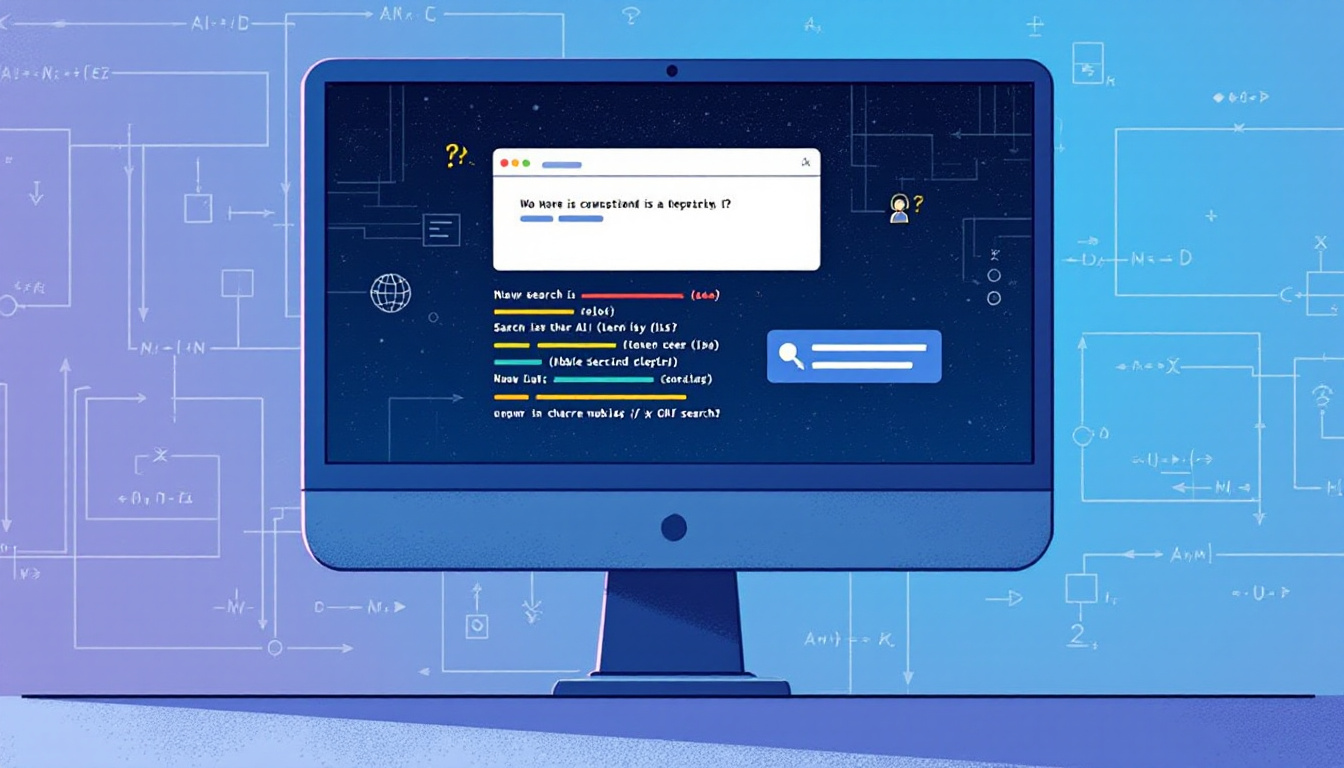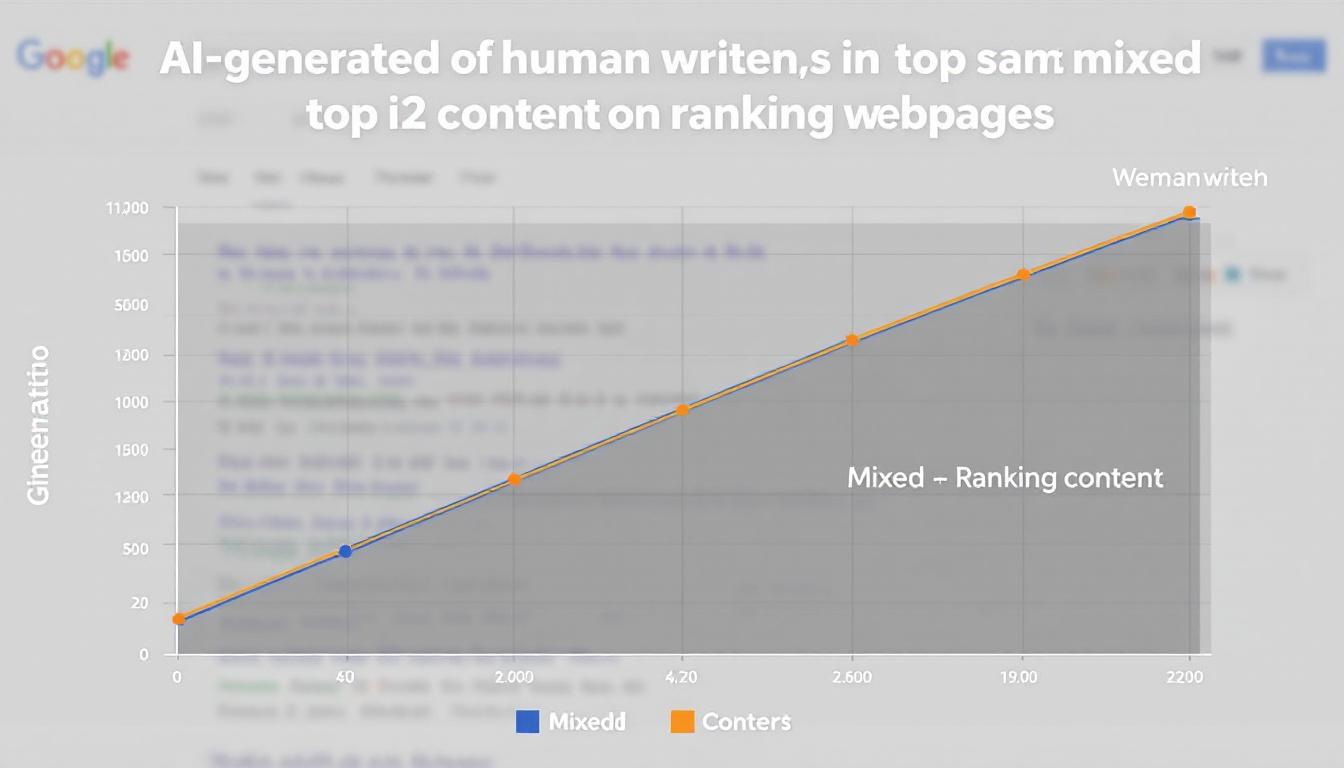A recent malfunction in Google’s AI Overviews has shed light on the inner workings of the search giant’s algorithm, offering a rare glimpse into how search queries are interpreted and responses are formulated.
SiteGuru
Elevate and track your website's performance with a practical SEO action plan.
These unexpected responses provide a unique opportunity to understand aspects of Google’s search mechanism that are typically concealed from the public eye.
Mysterious AI Responses
Lily Ray recently highlighted an intriguing issue where entering nonsensical phrases into Google resulted in fabricated answers, a phenomenon she dubbed ‘AI-splaining’.
The Phenomenon of AI-Splaining
This term emerged after Ray shared examples of Google’s AI presenting incorrect information in a confident manner.
For instance, when the phrase ‘Spit out my coffee’ was entered, Google’s AI Overviews generated a misleading response.
User Darth Autocrat criticized this behavior, arguing that it indicates a fundamental shift in Google’s functionality, suggesting it no longer operates purely as a search engine but is also attempting to generate answers or recommendations autonomously.
Google has a history of encountering search bugs, but this particular issue stands out due to the involvement of a large language model (LLM) that synthesizes responses based on both web data and internal knowledge structures.
Darth Autocrat’s critique underscores that this bug operates on a different level compared to previous ones, highlighting the complexities introduced by AI-driven search functionalities.
Beyond Google’s AI Overviews
The implications of this glitch extend beyond Google, revealing potential flaws in how AI systems interpret and respond to user inputs.
Parsing User Intent
Google’s systems attempt to decipher ambiguous queries by analyzing possible interpretations.
When faced with vague or unclear input, the AI likely employs a decision tree methodology to evaluate various potential meanings, eliminating less probable interpretations and settling on the most likely intent.
This approach was further illustrated by a recent Google patent focused on real-time decision-making to enhance user interactions.
Comparative Analysis with Other AI Models
Testing across different AI platforms revealed similar tendencies in handling ambiguous queries.
Experiments with Google, ChatGPT, and Anthropic Claude demonstrated that all three platforms sometimes misinterpret user intent and provide incorrect answers with confidence.
For example, a fabricated fishing technique query resulted in erroneous responses from Google’s AI Overviews and ChatGPT, while Anthropic Claude and Google Gemini Pro 2.5 offered more accurate and cautious answers.
These observations suggest a common challenge among AI models in accurately inferring user intent, especially when faced with nonsensical or highly specific queries.
The ability of some models to recognize and appropriately handle such inputs highlights differences in their underlying training and response strategies.
Implications for Google’s AI Overviews
The current issues with AI Overviews may indicate underlying limitations in Google’s latest AI integrations.
Evaluating the Gemini Models
Comparisons between different versions of Google’s Gemini models reveal varying performance levels.
While Google has introduced Gemini 2.0 with advancements in handling complex queries, the persistent hallucinations in AI Overviews suggest that the model used for text-based queries might lag behind the Gemini 2.5 iteration.
This discrepancy points to potential areas of improvement in ensuring consistency and accuracy across different AI functionalities within Google’s ecosystem.
Overall, the glitches observed in AI Overviews not only highlight current deficiencies but also provide valuable feedback for refining and enhancing Google’s AI-driven search capabilities.
The Bottom Line
The unexpected behavior of Google’s AI Overviews serves as a revealing insight into the complexities of modern search algorithms.
While these glitches expose the challenges AI faces in accurately interpreting user intent, they also offer a window into the ongoing evolution of search technology.
As Google continues to develop and integrate more advanced models, understanding these issues will be crucial in improving the reliability and effectiveness of AI-powered search tools.








